The average household’s wealth in every US state revealed
Typical household net worth across America
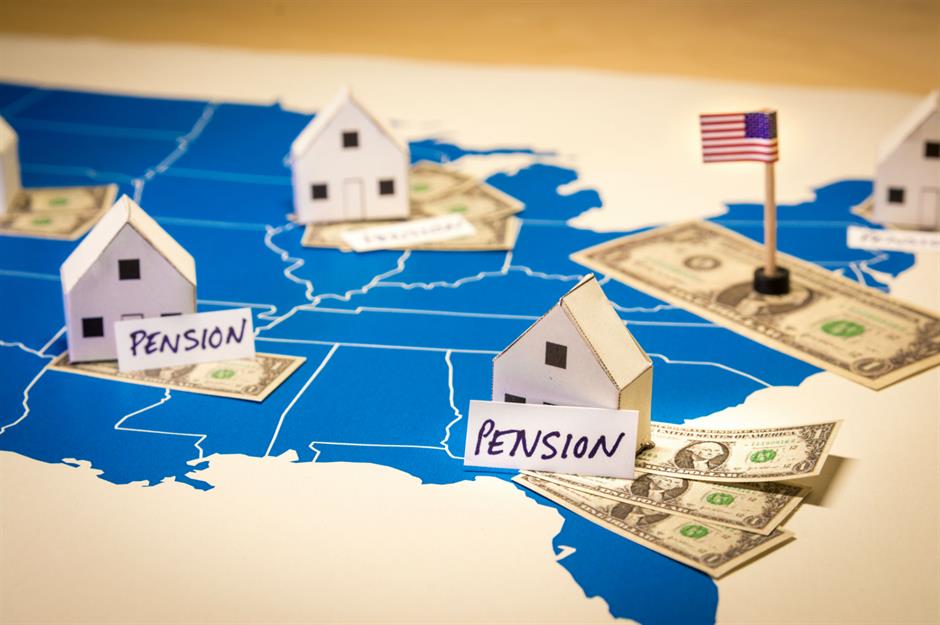
According to data from the US Census Bureau, the average American household had assets totaling $118,200 in 2019. However, this figures varies wildly depending on the state.
Wealth inequality is rife throughout America, with the richest 1% holding 32.3% of the nation's wealth. On the flip side, nearly two-thirds of the population survive paycheck to paycheck and 37 million live below the poverty line.
Wealth is defined as the total net worth of a household and includes assets such as real estate, savings, IRAs, and so on, minus any debt. Explore our gallery to discover which states are home to the households with the highest fortunes, compiled using US census data.
Mississippi: $40,280

Rich folks are few and far between in Mississippi, with the state home to both the country's highest poverty rate (19.6%) and lowest net worth, with the latter a paltry $40,280 per year.
On average, households reported having around $600 in checking accounts and $65,000 in home equity. Approximately 20% of the population has an IRA or Keogh retirement account.
Arkansas: $49,990

Arkansas is the second-least wealthy state in the country due to its $49,990 median, with lower than average home ownership and savings rates.
Over 20% of households in the Natural State have zero or negative net worth, meaning they owe more than own. This is the highest rate out of all 50 states.
Sponsored Content
New Mexico: $56,450
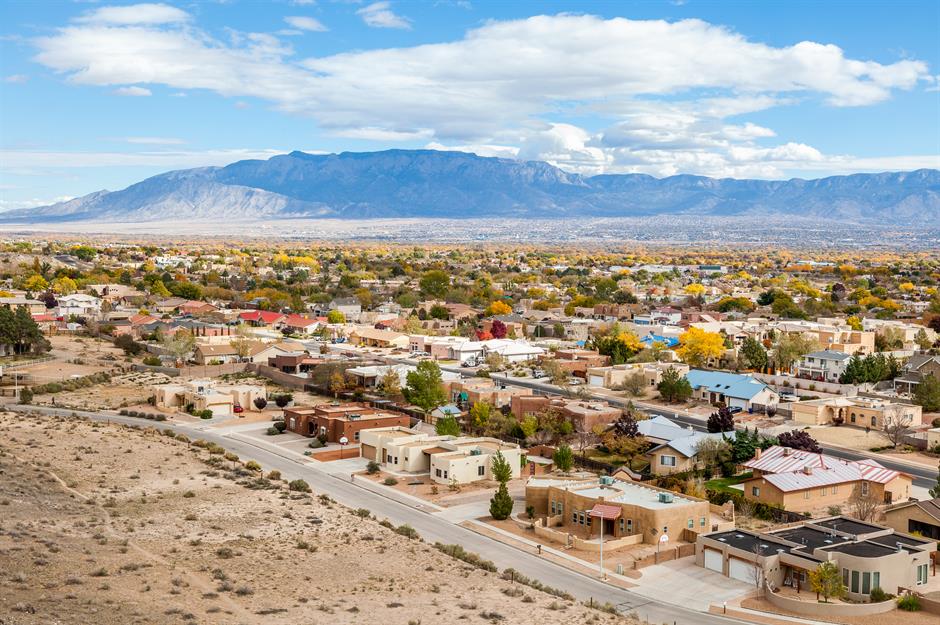
New Mexico has one of the highest poverty rates in America, so it's no surprise that it ranks poorly for wealth.
More than one-fifth of the state's households have income and assets that are worth less than $25,000. And it doesn't seem like it'll get better with age. Little more than a third of households have a 401(k)-type savings plan for retirement, which is well below the national average of 47%.
West Virginia: $65,290

West Virginia has long been considered a poor state, with plenty of residents living below the poverty line. Conversely, perhaps, it's also the state with the highest percentage of homeowners.
A whopping 78% of adults in the Mountain State own their property. While the state ranks low for overall wealth, around two-thirds of households have equity in their homes, and that rate is above the national average.
Tennessee: $70,100

Assets and incomes tend to be on the lower side in Tennessee. On average, households reported having $1,500 in their savings accounts, and only half had any sort of retirement pot lined up.
Though the state has more than 139,000 millionaire households, many people struggle to get by – and with the average household's net worth sitting at $70,100, it's not much surprise.
Sponsored Content
Missouri: $70,220

Just under one-fifth (18%) of households in Missouri have no wealth or owe more than they own, which is above the national average of 14.9%.
Even those who do hold assets, be it in the form of equity in their homes and cars or via their retirement savings, are still missing out compared to other citizens across the country. Their assets hold lower values compared to other states, and as such the average household's net worth sits at $70,220.
Kentucky: $73,150

One of the states with the lowest number of millionaires, Kentucky isn't exactly known for its multitudes of rich residents. Its poverty rate is also one of the highest in the country, currently sitting at 16.3%.
Although ownership of homes in the Bluegrass State may be above the national average, house prices tend to be low and make up a significant portion of people's net worth.
Households report only $70,000 in home equity, which is well below the national average of $130,000.
Kansas: $77,010

Kansas is home to a nation of savers, with almost every category tracked by the census data suggesting that it had a higher percentage of asset holders.
However, much like its neighbor Missouri, the values of these assets are all lower than the national average, with the exception of IRA or Keogh accounts.
Sponsored Content
Oklahoma: $80,790

With one of America's highest poverty rates, it's little wonder that more than 20% of households in Oklahoma have zero or negative wealth.
The state's racial wealth gap is also shockingly wide. In Tulsa, for example, the typical Black household has just $0.06 of wealth for every $1 in a white household.
South Carolina: $81,150
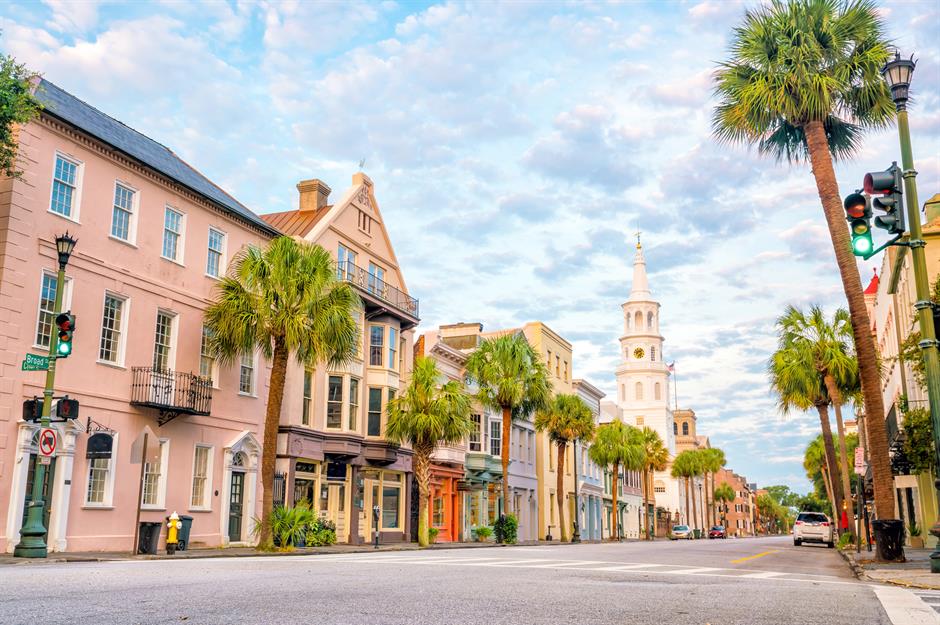
Much like other states in the South, there are high rates of home ownership in South Carolina – just with low rates of equity.
South Carolina also keeps its minimum wage tied tightly to the federally-mandated $7.25, meaning its workers are among the lowest paid in the nation. On the flip side, 21% of households report a net worth of $500,000 or more.
Rhode Island: $83,790
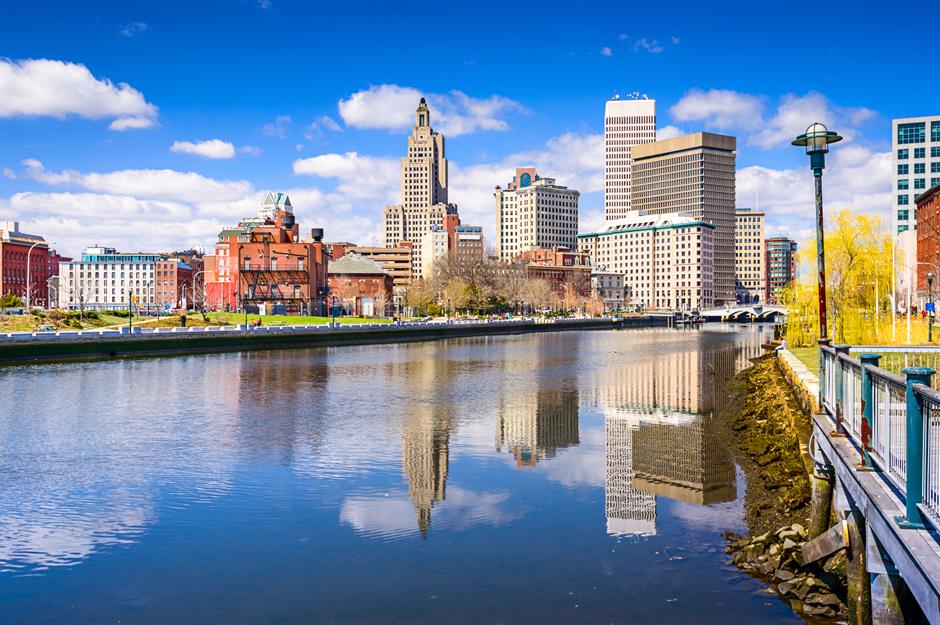
The median net worth of Rhode Island households is actually higher than $83,790. Not all of the state's asset values, such as retirement savings and home equity, have been recorded in the 2020 Census, due to small sample sizes.
With a higher than average cost of living, it's likely that its residents are worth much more, especially considering that the state's median house price is $423,336 according to real estate agency Zillow.
However, only half of households have home equity, which is below the national average of 61%.
Sponsored Content
Indiana: $84,620

Indiana has an impressively high rate of home ownership, as well as America's third-lowest average mortgage debt.
However, the state's median income is low and so is the value of most of its households' assets. Only around 17% report a net worth of $500,000 or more, while around one-third of the state's residents have $25,000 or less to their name.
Louisiana: $84,850

Louisiana has one of the highest poverty rates in America and is also one of the worst offenders for income inequality due to its high concentration of poverty.
This is reflected in household assets. Of all 50 states, Louisiana has the lowest percentage of people with checking acounts, and the median value of them is only $1,200.
Home equity is $100,000 on average but home ownership rates in the Pelican State are not nearly as high as they are in neighboring areas.
Alabama: $85,900

Like other states in the Deep South, average household wealth in Alabama is significantly lower than the national average. With only slightly more net worth compared to its neighbors in Louisiana, the difference comes down to savings.
While the median value of a savings account is higher in Louisiana, a greater percentage of people have money in savings accounts in Alabama, where there are also higher levels of retirement savings.
Sponsored Content
Texas: $90,390

You'd be forgiven for thinking Texas might rank well when it comes to average household net worth. In reality though, not many of its residents live the lifestyle portrayed by iconic TV show Dallas, and the gulf between the rich and poor is only getting wider.
In contrast to the state's 650,200 millionaire households, 15% of households have zero or negative wealth, while 13% of Texans live in poverty.
Nevada: $93,920

Net worth levels out at just $93,920 in Nevada and residents have a tendency to be asset-poor.
Home equity is higher than the national average at $145,000, which reflects the state's higher house prices. However, that said, home ownership is actually relatively uncommon, with only around half of households having equity in their homes.
Florida: $95,770

Much like Nevada, the median net worth in the Sunshine State is below the national average, except when it comes to home equity.
Florida has America's largest retirement population, which likely makes up a significant portion of the 62% of households who have equity in their homes. Even with low asset values across the board, these seniors bump up the average household net worth to $95,770.
Sponsored Content
Nebraska: $99,520
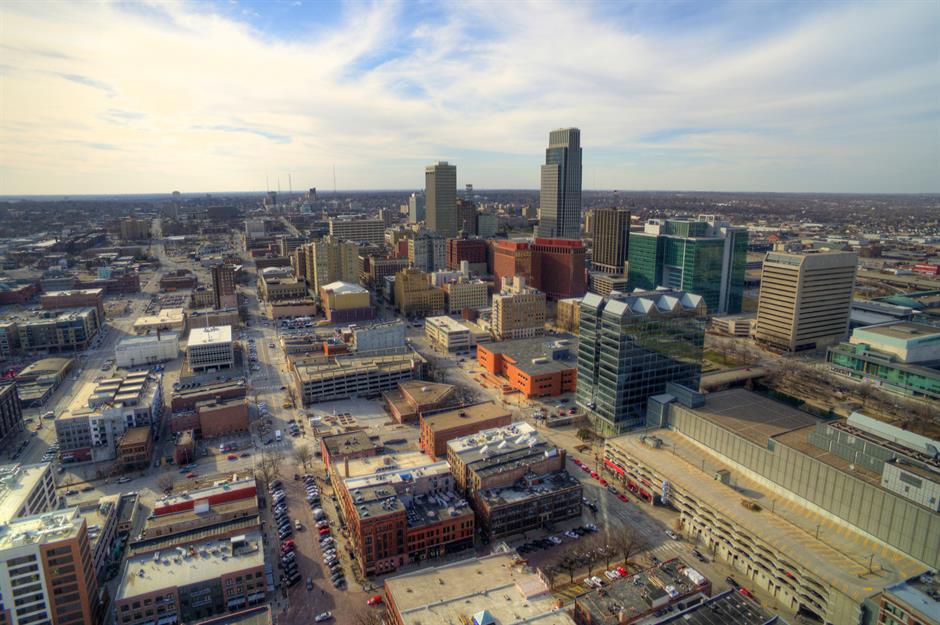
With a lower cost of living, especially in terms of house prices, many Nebraskans own assets that are worth less than the national average.
While only 6% of its households are worth a million dollars or more, the state does have a higher rate of households who are saving for retirement.
Ohio: $102,800

The median net worth of households in Ohio may be lower than the national average but the state's residents excel when it comes to saving for retirement.
Public retirement programs are estimated to be worth at least $200 million, keeping former teachers, firefighters, police, and other public employees comfortable later in life.
However, it's still worth knowing that one-third of Ohio's households have a net worth of less than $25,000, or owe more than they own.
Illinois: $103,500

Poor home equity rates are keeping the typical Illinois household's net worth below the national average. The state has seen its number of home owners decline over the last decade, and its house prices are the second-slowest growing in the nation according to data from the Federal Housing Finance Agency.
This can vary by location though, with properties in the Chicago metro area selling for higher prices.
Sponsored Content
Maine: $107,400

As is the case in many other Northern states, households in Maine tend to be more affluent than most thanks to a number of factors including higher wages and an older, asset-rich population.
While the cash value of assets like bank accounts are lower, there are higher rates of home ownership, as well as of people saving.
North Carolina: $108,400

North Carolina is by far one of the wealthiest Southern states in terms of its typical household net worth.
Compared to the national average, people here are more likely to have money in the bank, though these assets might not be worth as much as they look.
North Carolina's cost of living and house prices are both on the lower end of the spectrum, which could explain why home equity is also low, further reducing the state's median net worth.
Georgia: $110,000

Home to significant income inequality, nearly 19% of households in Georgia are worth $500,000 or more, while the same percentage have zero wealth or owe more than they own.
The income gap has been steadily widening in the Peach State. And it's significantly worse in its capital city Atlanta, where Black households typically have a median income that's a third of white households.
Due to these extremes, the median net worth works out to just below the national average.
Sponsored Content
Wisconsin: $110,400

Wisconsin's poverty rate is lower than the national average, and the state also has less in the way of wealth inequality.
While it doesn't have as many millionaire households as Georgia, Wisconsonites save more overall at the bank and for retirement, while also holding more home equity.
Michigan: $117,600

With the median household net worth in America coming in at $118,200, Michigan is as close to the national average as it gets.
While most of the state's households have assets that are actually worth less than the nationwide average, a higher percentage of households have cash in their bank accounts and equity in their homes.
This is particularly true when it comes to retirement savings and 401(k) plans, which is no surprise; the state has seen a massive demographic shift, with at least a quarter of its population now aged 60 or older.
Alaska: $120,365

Alaska is the state with the lowest levels of income inequality, and with generous wages and no income tax, the typical household's net worth is naturally high.
However, the most up-to-date insight on the state's median net worth by household is unknown. Census data from 2020 didn't cover a large enough sample size to accurately report much on the state's wealth.
Sponsored Content
New York: $123,900

There's a veritable chasm between the rich and poor in New York. While well-heeled Manhattanites living in upscale neighborhoods tend to be extremely asset-rich, many households in both the city and upstate area have a hard time making ends meet.
Accordingly, New York is the state with the highest rates of income inequality. Still, the median household net worth is above average at $123,900.
Arizona: $126,100

Phoenix has the fastest-growing house prices in the US and increasing home equity has given households across Arizona a bump in net worth.
The number of people that own their homes is 3% lower than the national average. However, the state's large retirement-aged population, who are more likely to own property and less likely to carry a mortgage, has benefited from the boost in prices.
Pennsylvania: $137,800

The population is older in Pennsylvania too, which generally means people are more asset rich. Accordingly, the state's homeownership rate is high at 71%.
At the same time, households also report having more cash in checking and savings accounts, which further boosts the net worth to a median of $137,800.
Sponsored Content
Vermont: $141,716

Like Alaska, insufficient sample sizes prevented the US Census Bureau from reporting updated figures on median net worth.
However, we do know that residents of Vermont continue to have high rates of home-ownership, and a good number have equity in their properties. With its older population, neither of these facts come as a huge surprise.
Delaware: $143,700

It's a similar story in Delaware, where around 20% of the population is aged 65 or older.
Much like its northern neighbor Pennsylvania, a high number of residents own their homes. However, house prices are just that bit higher in Delaware, giving property owners extra equity, and the percentage of millionaire households also trumps Pennsylvania too.
The state's median household net worth of $143,700 is likely higher in reality, as the US Census Bureau couldn't report all retirement savings data for Delaware.
Virginia: $148,400

The richest Southern state, Virginia has a high number of millionaires per capita – in fact, a whopping 8.3% of households have assets worth $1 million or more.
Accordingly, residents have almost twice as much equity in their homes as their neighbors in West Virginia.
Virginia also has the lowest rate of poverty in the South – just 10% of residents live below the poverty line.
Sponsored Content
Iowa: $152,800
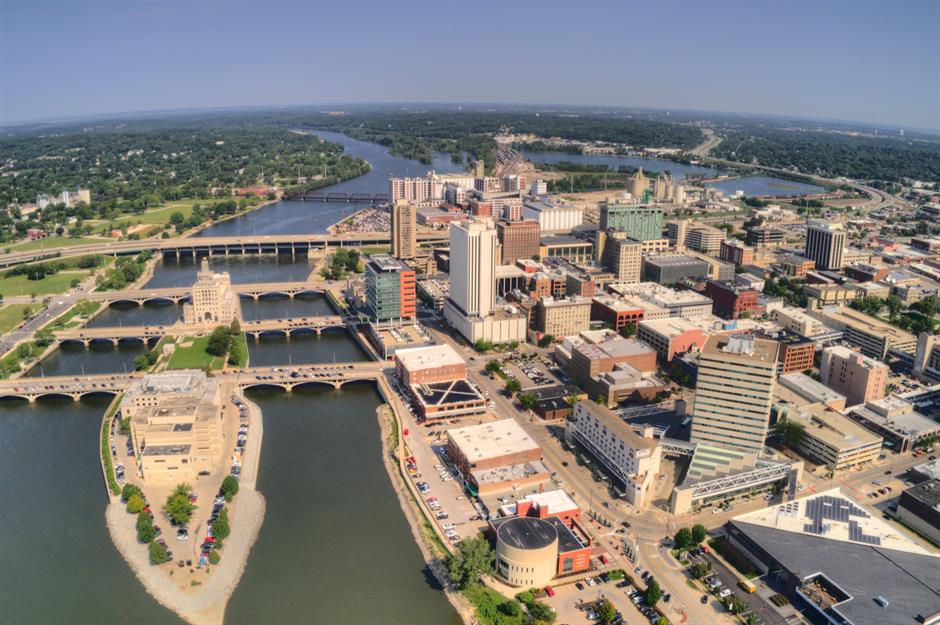
With a low cost of living, households in Iowa have distinctly less home equity than others. However, their bank accounts are higher in value on average, and they've got lots of cash stored away in retirement accounts.
Across the board, Iowa has higher rates of people holding assets whether in a bank or in terms of the vehicles they own. Low house prices have kept net worth low, and it comes in at $152,800 on average.
Washington: $170,400

Over in the Pacific Northwest, the situation couldn't be more different to midwestern Iowa.
In Washington, skyrocketing house prices and resulting home equity have driven up the median net worth to $170,400, despite just 59% of households holding equity in their homes.
Seattle, the state's largest city, is facing a significant gap in income equality, especially when looking at racial disparity. Even before the pandemic, white residents had three times more wealth than the city's Black residents.
Utah: $170,900
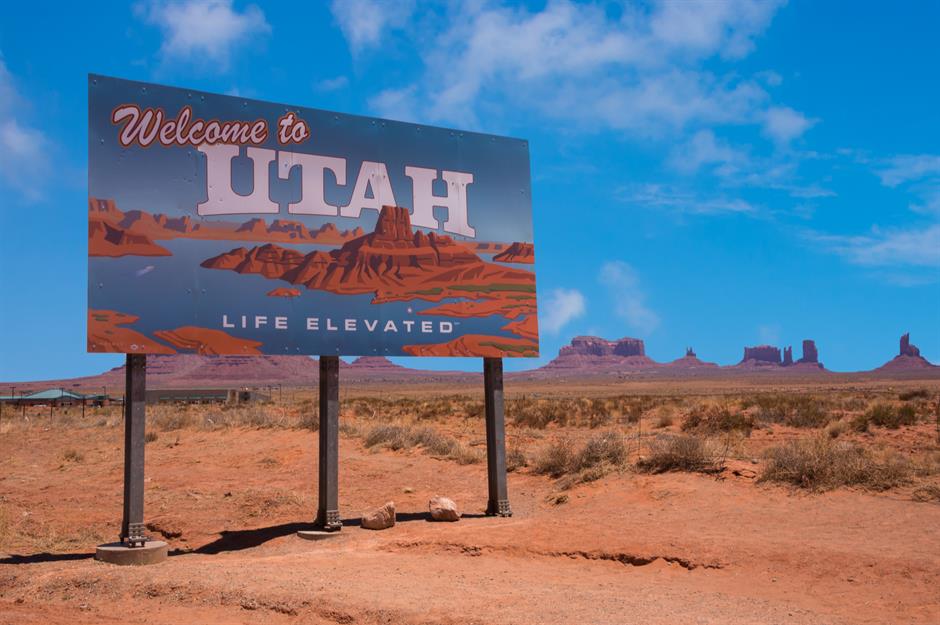
While the median household income in Utah isn't as high as some on our list, it still comfortably beats the national average by over $50,000.
The state has one of the country's lowest poverty rates, with more than 70% of residents owning equity in their homes.
Sponsored Content
Wyoming: $171,600
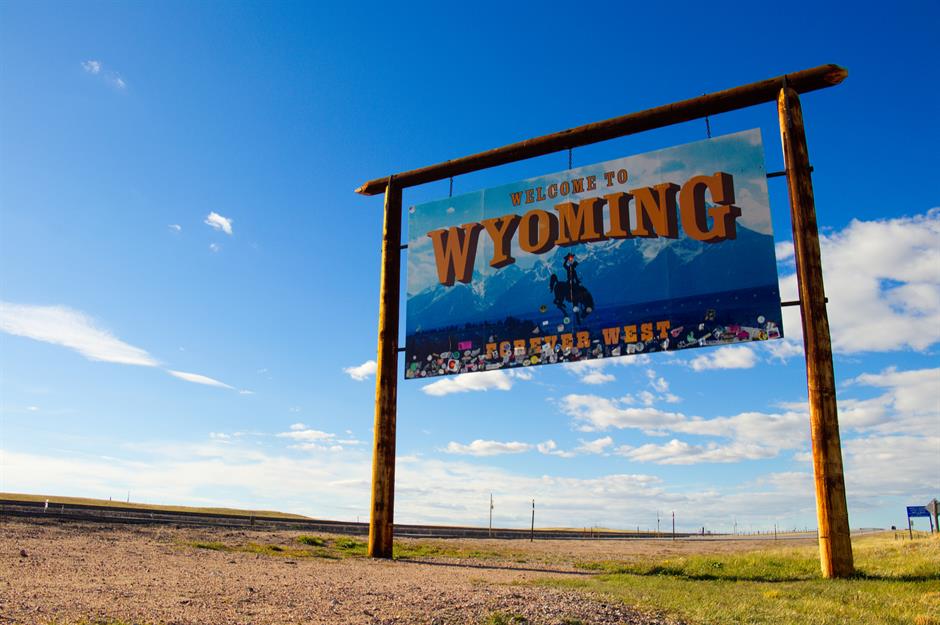
Household wealth is well above the national average in Wyoming at $171,600. Home ownership is common and at 77%, the state has one of the country's highest percentage of people holding equity in their homes.
Living up to its official nickname, the Equality State has one of the lowest levels of income inequality in America and only around 10% are living below the poverty line.
Connecticut: $173,500
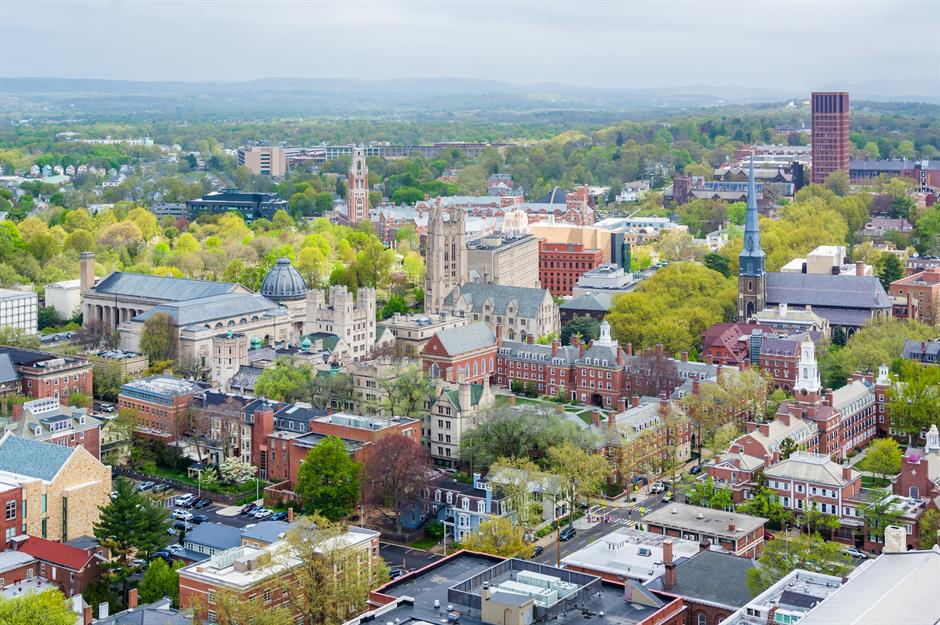
Connecticut is renowned for its rich residents and has the third-highest number of millionaires per capita.
On average, households reported having $10,000 in savings, plus large reserves in retirement accounts. That said, income inequality is higher here than any other east coast state except New York, and 16.5% of households have no or negative net worth.
Idaho: $182,400
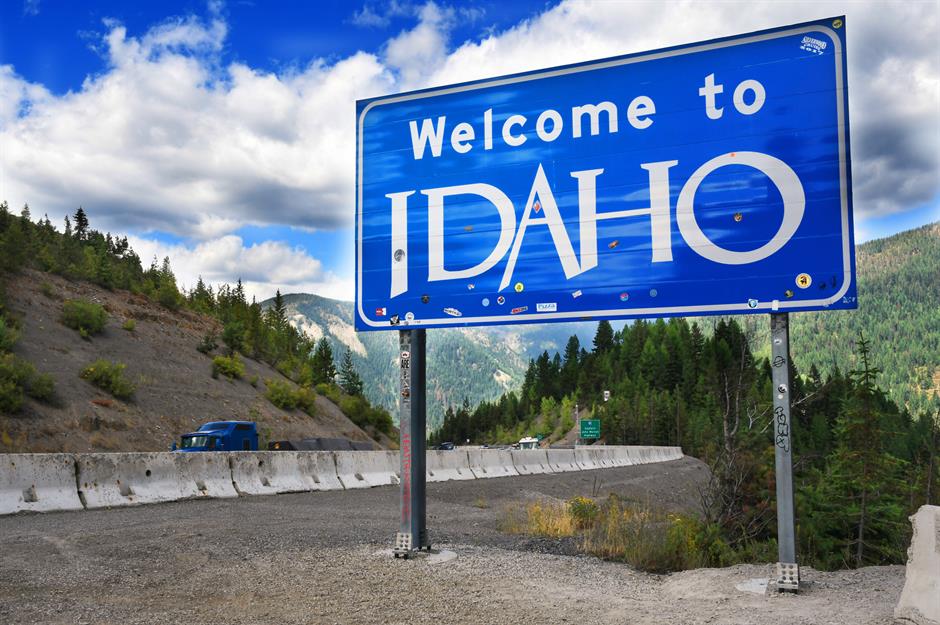
The median household net worth in Idaho has nearly doubled going from below average to well above.
The 2020 census data found that it was the country's fastest growing state over the last decade, with swathes of newcomers helping to drive up house prices. In Boise, for example, the typical property value is $513,849.
Fittingly, the percentage of people holding equity in their homes is also among the highest nationwide.
Sponsored Content
Oregon: $183,200

Not only do more households in Oregon have savings in the bank but their accounts are also typically worth more on average.
The same goes for retirement accounts, with Oregon's IRA and Keogh accounts among the highest in value nationwide. While home equity is high here, less than two-thirds (63%) of households hold any equity and home ownership seems to be in decline.
Montana: $190,300

With very few millionaire households, Montana's robust net wealth can be attributed to a healthy level of home equity ownership and cash set aside in retirement accounts.
The state's poverty rate is lower than the national average and income equality is moderate. This all makes sense as Montana has a greater percentage of retirement-age residents than most other areas across the country.
Maryland: $194,700
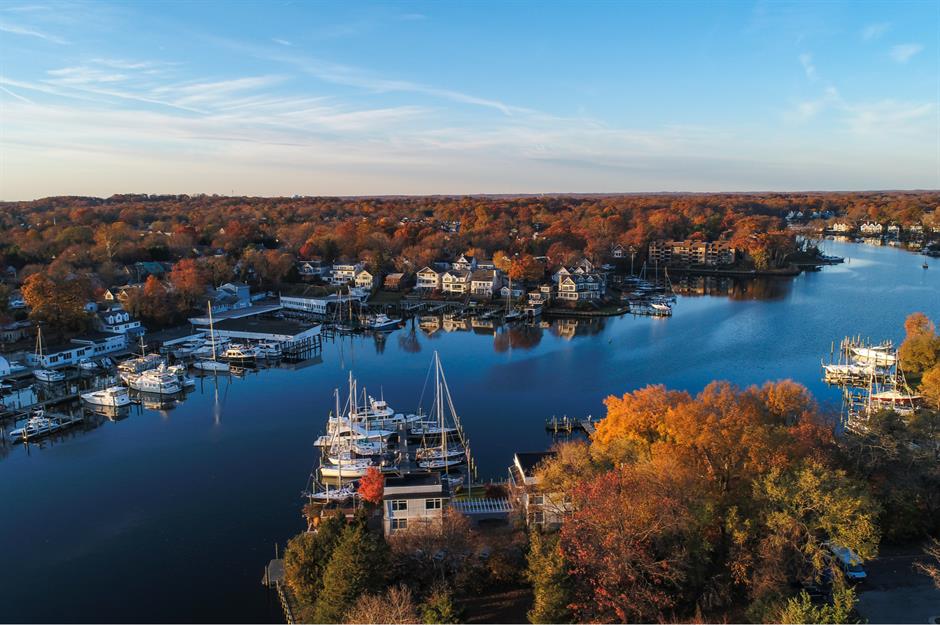
According to a CNBC report from 2018, Maryland has the most millionaires per capita, with more than one-in-12 households owning assets worth upwards of $1 million.
Unsurprisingly, perhaps, the state's median household savings are also high. A large number of residents own valuable property, while the poverty rate is one of the lowest in the country.
Sponsored Content
New Jersey: $195,200

Considerably wealthier than neighboring New York, the Garden State has America's highest number of millionaires per capita. The total number of households holding assets of $1 million or more stands at 323,443.
New Jersey's rate of poverty is also among the lowest in the nation and 76% of residents have savings outside of a retirement pot that they can dip into.
California: $200,300

A place of striking economic contrasts, California is the state with the most million-dollar households (clocking in at over 1.14 million) yet also has one of the country's highest poverty rates, at around 12%.
The Golden State also has one of the lowest rates of home ownership in America (52.3%), which looks set to decline even further. Though the median home equity of $320,000 is still well above the national average, it's held by little more than half of the state's residents.
South Dakota: $216,600

Unlike its more moneyed northern namesake, South Dakota hasn't benefited as strikingly from the fracking boom, which peaked in 2012 and sent incomes and household wealth on an upward trajectory in the area.
Even so, its typical household wealth is still above the nationwide average at a not-too-shabby $216,600.
Sponsored Content
Colorado: $217,900

Households in Colorado have plenty of cash in the bank and home equity is high.
However, with house prices skyrocketing over the last decade, many people have been priced out of the market and homeownership is actually on the decline. Though the median house price has more than doubled in Denver over the last decade, poverty rates still remain low.
Minnesota: $228,500

The fifth wealthiest state, Minnesota has everything from a low rate of poverty to plenty of people saving.
It's one of the few states where the portion of the population with no or negative net worth is less than 10%. Combined, these factors help to push up the typical household net worth to a very respectable $228,500.
North Dakota: $241,000

The shale oil boom has resulted in mushrooming incomes in North Dakota and has had a very positive effect on household wealth, making for increased disposable income.
Poverty isn't as prevalent in the state as it once was. Despite this, the rate of home ownership is still low at 64%, possibly due to housing shortages from the oil boom.
Sponsored Content
New Hampshire: $243,600

New Hampshire households are by and large affluent. An impressive 84% of residents are savers, while their assets held in retirement accounts are much higher than the national average.
The state has the lowest percentage of people living below the poverty line at just 7%, while home ownership is very high and wealth is relatively well-distributed.
Massachusetts: $251,000

The richest state in New England, Massachusetts boasts both a high minimum wage and low poverty rate.
Just under 10% of its households have more $1 million or more in assets and retirement accounts have the second highest value in the nation. It's hardly surprising, therefore, that the typical household net worth figure is so high.
Hawaii: $373,200

The state with the highest average household wealth is none other than Hawaii.
With a relatively high population of asset-rich baby boomers who have largely been lured to the area by the sunshine lifestyle, residents' savings and retirement accounts are flush with cash.
Over two-thirds of households have equity in their homes, with the figure nearly triple the national average at $373,200. At the same time, there's also low income inequality and only around 4% of households reported no or negative net worth.
Now discover the best and worst US states to grow old in.
Sponsored Content
Comments
Be the first to comment
Do you want to comment on this article? You need to be signed in for this feature